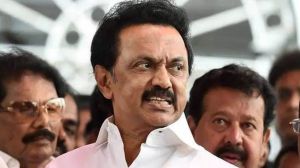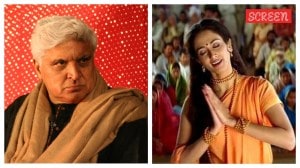CPI Moribund
The Left recapture of Nandigram with its scant respect for the rule of law and the Left veto on the nuclear deal...

The Left recapture of Nandigram with its scant respect for the rule of law and the Left veto on the nuclear deal are born out of the same dilemma haunting the Marxists for more than a decade now. It is about the inability to come to terms with a world where traditional Left ideology is no longer in ascendance. If the Nandigram brutality has resulted from blindly following an extra-constitutional model of governance perfected in the 1970s, the rigidity on the nuclear issue stems from a stubborn refusal to discuss imperialism in the changed global power scenario. In both cases, the Indian Left has avoided what Marxist jargon would describe as 8216;engaging with reality8217;.
Communist visionaries had the daring to deviate from the beaten track because they had the pragmatic belief that ideologies are never cast in stone. Mao Zedong and Deng Xiao Ping married Marxism to the country8217;s economic needs from an entirely nationalist perspective. On the other hand, the Indian Left has always grappled unsuccessfully with the problem of letting the 8216;ism8217; thrive in the Indian reality. It was Lenin who advised M.N. Roy, that there was nothing wrong in participating in the freedom struggle led by bourgeois nationalists. There has been a tendency of both the undivided CPI and subsequently the CPM to look for ideological reassurance from sister Communist parties abroad. Consequently, the party has been prone to being more internationalist than necessary in the strict Communist sense.
In the post-Cold War context, the Indian Left was in a position to redefine itself and provide leadership to the global Communist movement. There was curiosity in Europe and Latin America about a cluster of Left parties that have survived and grown in a genuinely diverse, democratic milieu. The CPM and the CPI would have been taken seriously by a new conscientious and liberal Left, resuscitated especially in Europe by a shared pathological hatred for George Bush and the American misadventure in Iraq. But the CPM drifted along and failed to occupy that position of worldwide respect that was there for its taking. You cannot win over comrades in countries like Portugal or Cyprus where the rejuvenated Communists have some following by clinging to an obsolete Stalinist perspective. It was not expected of the CPM to go so far as to concede vast tracts of ideological terrain and become a social democratic force or like the British Labour Party, but it could have shed dead ideological baggage.
Instead, Prakash Karat became a regular invitee to the court of Hugo Chavez. The Chavez brand of Communism does not have the ideological sanction that Fidel Castro8217;s Cuban socialism possessed. Venezuelan oil-rich Communism can be equated with superficial anti-Americanism, an ideological brand that traditional Marxists would have abhorred. The Chinese Communists kept in touch with the Indian Left and while their October party congress a month ago didn8217;t utter a word against American neo-imperialism, Karat and his colleagues continue to write volumes against so-called evil American designs. For them, any mention of a strategic alliance with the US implies reducing India to a banana republic. The Left appears unconvinced about the strength of Indian democracy and its expertise in negotiating a good bargain. Communists refuse to accept that neo-imperialism doesn8217;t rely any more on state power and that multi-national corporates have rewritten the code of national sovereignty. They are fighting the ghosts of enemies that have long withered away.
Karat and his doctrinaire politburo colleagues will have to take the blame for disallowing a discussion on dealing with imperialism in the 16th, 17th and 18th party congresses of the CPM. The party8217;s ideological gurus have taken advantage of the hesitation among the rank and file to ask embarrassing questions of party stalwarts. The usual war cry has been sounded decrying the practitioners of that exploitative, market-centric expansionism. A.K. Gopalan Bhavan in Delhi has seemed completely out of sync with developments at Writers Building in Kolkata in Buddhadeb Bhattacharjee8217;s regime.
The Nandigram catastrophe is symptomatic of this ailment. Bhattacharjee had to invoke the magic mantra of cadre raj to rid Nandigram of non-CPM elements. The rest of the country suddenly witnessed two faces of Buddhadeb 8212; the sincere, create-a-new-Bengal face and the intolerant CPM-first face. This dichotomy between new private capital and decadent party structures has troubled even the Chinese authoritarian set-up. Bhattacharjee will have to realise that glasnost and perestroika do not come without dismantling party structures. He will find out that investment doesn8217;t travel to war-ravaged destinations. The CPM party structure had included the lumpen elements after lessons learnt during the Emergency. In the 21st century, that weapon needed to be junked. In a post-Gorbachev world, Communism without a human face is a dead doctrine.
The Nandigram savagery and the Deve Gowda brand of arm-twisting on the nuclear deal have highlighted the Left8217;s political brinkmanship. Elsewhere, you turn Left to refer back to a conscientious standpoint. In India, the dogmatic Left no longer has a conscience.
The writer is national affairs editor, CNN-IBN
- 01
- 02
- 03
- 04
- 05































